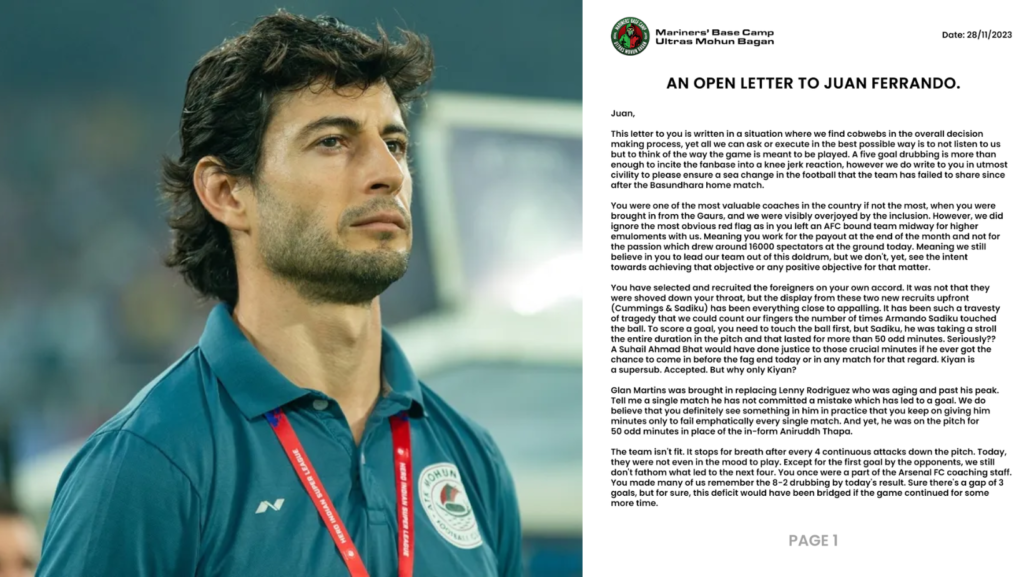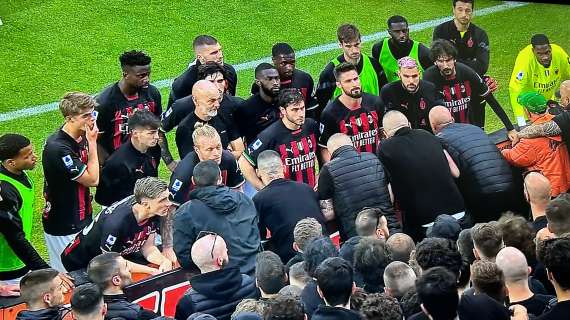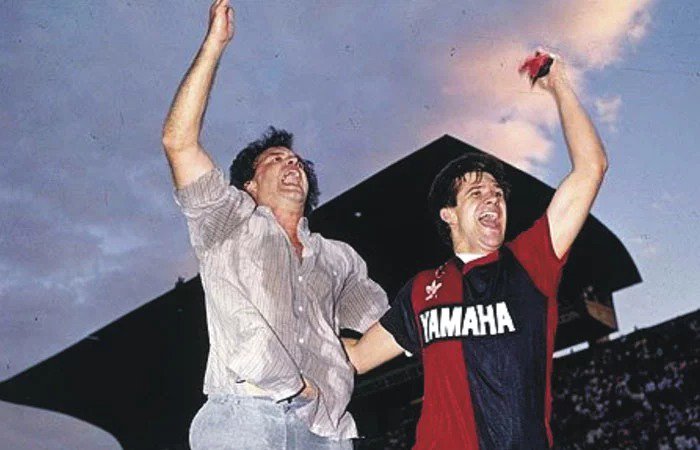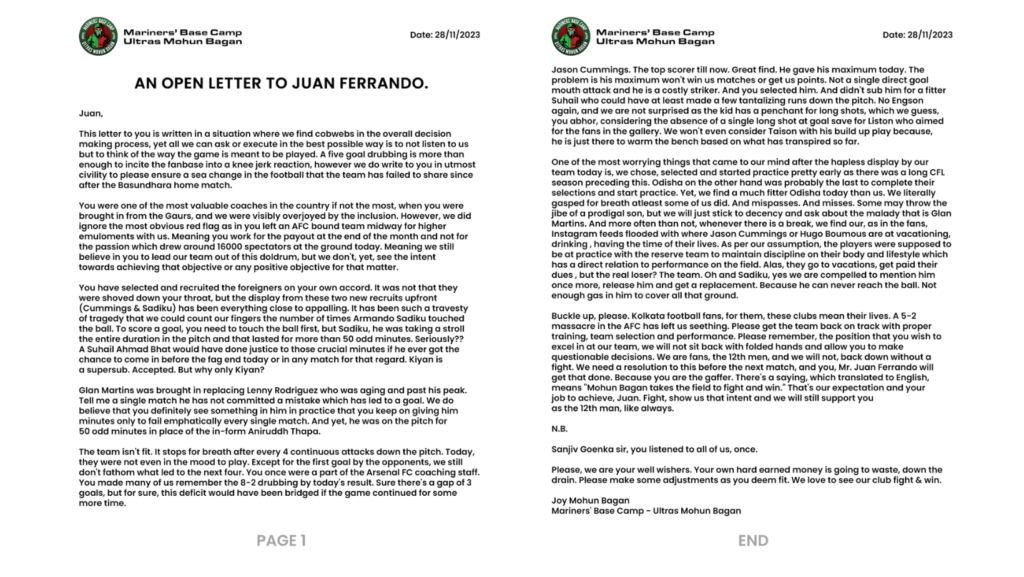
In their den, Mohun Bagan Super Giants suffered a major setback, succumbing to a 5-2 defeat against Odisha FC in their AFC Cup group D encounter. That defeat marked the end of The Mariners’ journey in this year’s AFC Cup. The win set up Odisha FC for a crucial showdown against Bangladesh’s Bashundhara Kings on December 11, with victory imperative for securing a spot in the inter-zonal play-off semifinal.
However, this article won’t dwell on the match itself. Its aim is to focus on the supporters’ reactions. An open letter addressed to Juan Ferrando, MBSG head coach, has been circulating on social media, expressing discontent and raising concerns about his commitment to the team. The letter pointed out a perceived “red flag” in Ferrando’s transition from a promising stint with FC Goa to Mohun Bagan, suggesting a motive rooted in financial gains rather than a genuine passion for the sport. “You were one of the most valuable coaches in the country if not the most, when you were brought in from the Gaurs, and we were visibly overjoyed by the inclusion,” said the letter. “However, we did ignore the most obvious red flag as in you left an AFC bound team midway for higher emoluments with us. Meaning you work for the payout at the end of the month and not for the passion which drew around 16000 spectators at the ground today.”
Despite Ferrando’s instrumental role in securing the Indian Super League (ISL) title for Mohun Bagan in the 2022-23 season, he now finds himself under scrutiny for two recent AFC Cup losses – to Bashundhara Kings away and Odisha FC at home. Given the team’s unbeaten start in the ISL, it is imperative for fans to exercise patience and understand that setbacks are inherent in the world of sports.
Back in March, AC Milan lost 2-0 to Spezia in a Serie A match at the San Siro. That defeat came on the back of another 2-0 defeat to Inter, their city rivals, in the Champions League semi-final first leg. At the time, Milan, fighting for a top-four finish to book their UCL spot, were fifth in the table. The vast stand that houses their Ultras lectured the players and management at length on the value of the badge on their shirts. These legacy clubs are about a lot more than just football for the fans. They are a part of the fabric of their lives, but there needs to be an understanding that the players are also human beings who are allowed to fail.

Less than a fortnight ago, India’s cricket team received a similar social media backlash after their World Cup final loss against Australia. All of a sudden, the 10-match unbeaten streak was irrelevant. A not-insignificant cross-section of fans exhibited knee-jerk reactions on social media, underscoring the need for a more measured and understanding response.
Many will remember Marcelo Bielsa’s fairytale season with Leeds United that led them back to the Premier League after 16 years away. But even Bielsa, whose murals still adorn the streets around Elland Road, could recall the wrath faced on less-magical days. Back in 1992, when he was in charge of Newell’s Old Boys – yes, Lionel Messi’s childhood club – his team lost 6-0 to San Lorenzo in the Copa Libertadores. Bielsa, in his pyjamas, had to confront an angry mob of Newell’s Ultras with a hand grenade when they came to his door. “I die after each defeat,” he once told The Mirror. “The week that follows is hell.”

Bill Shankly, the Scottish manager who laid the foundations for Liverpool’s decades of success, once said, tongue firmly in cheek, that “Football is not just a matter of life and death. It is much more important than that”. Though such a quip can be used to glorify the fan madness that we are talking about, it should not be the case that after a couple of losses or defeat in a final, the coach has to carry a hand grenade back home to protect himself and his family.
There has been no official reply from Ferrando, but the Spanish coach, who has won the Green-and-Maroons a Durand Cup title as well, should be given time. The fans should be patient, and stand by the club when they lose. Sir Alex Ferguson took charge of Manchester United in November 1986, but won his first league title only in 1992-93. By the time he departed in 2013, he had added 12 more, in addition to two Champions League wins. Sometimes, it pays to be patient.





